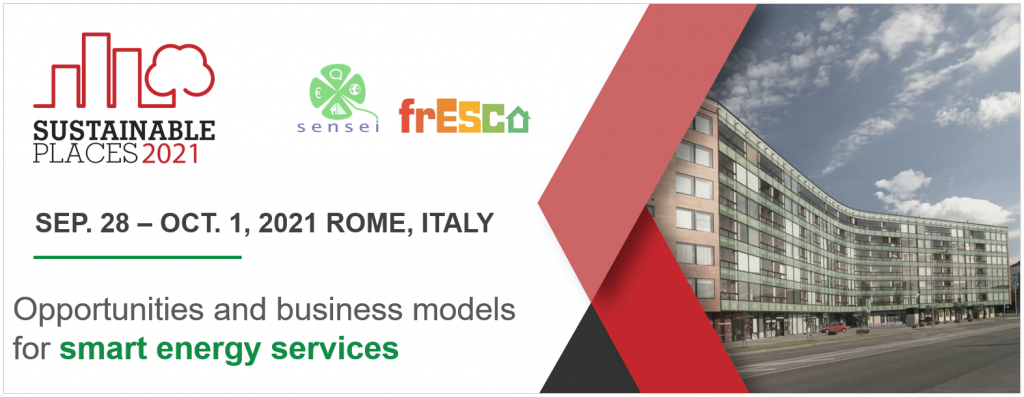"Smart Energy Services" workshop
17:00 – 18:30, 29th September 2021, virtual

This 90-minute virtual workshop entitled “frESCO and SENSEI explore the opportunities for smart energy services leading to new business models that can unlock the potential of residential consumers and domestic building stock to contribute to future energy efficiency and flexibility” invited stakeholders to an interactive discussion on Pay-for-Performance schemes based on presentations about the latest developments in Europe. The workshop commenced with a review of P4P (Pay-for-Performance) schemes put in place by regulators and utilities, mostly in North America, to promote energy efficiency and reduce the costs of the energy transition. It then presented the value of energy efficiency as an energy resource if it is enabled to participate in forward capacity and ramping reserve markets. This examination is creating realistic market scenarios based on quantitative modelling and the use of historical data about indicative capacity markets. frESCO & SENSEI partners then proceeded with a panel discussion on P4P (including audience Q&A), reflecting on the US experience and its transferability to the EU, efforts in setting up P4P pilots, the necessary actors and steps they could take to establish profitable schemes, current barriers and uncertainties, and exploring future paths.
To showcase practical applications, the workshop presented service models based on P4P. Big data for example facilitate building energy management, data analytics enable implicit and explicit efficiency, and performance optimisation of distributed storage and generation. The result will be energy savings to incentivise end-users and service providers using a P4P approach. Data can also be used to configure Virtual Power Plants enabling domestic demand flexibility for cost-efficient grid management and balancing by grid operators. The workshop aimed to outline emerging business models, where revenues from data-driven energy services under P4P contracts are based on: energy efficiency services operated by ESCOs to improve energy management; and aggregated demand flexibility extracted from users and traded in open markets. Implementing P4P requires adaptation to existing market contexts, stakeholders and existing solutions in the field of Energy Efficiency and finance. The workshop also provided guidelines on financing and operationalising P4P schemes so that they are plugged into the basic energy system mechanisms and contractual frameworks.
An analysis of the regulatory framework and barriers is warranted since energy service models confront the differing regulatory landscapes across member states. Here we discussed the main findings on market acceptability of demand response, the access to real-time data in buildings and the interaction with other building energy performance regulations with a focus on the frESCO demo site countries. To support P4P business models, this workshop was held on how EU policy developments may pose risks or offer opportunities, and offered recommendations on how policies may better facilitate the establishment of P4P schemes. The innovations are directed at enabling P4P to enter the domestic market. For this to happen the payoffs on the business side need to be shortened and the requirements and incentives (market or otherwise) for domestic consumers need to be investigated and clarified. frESCO pursues a data driven approach to streamline and combine different service packages into business packages, especially efficiency and flexibility. Requiring innovation in business models and data collection and treatment.
